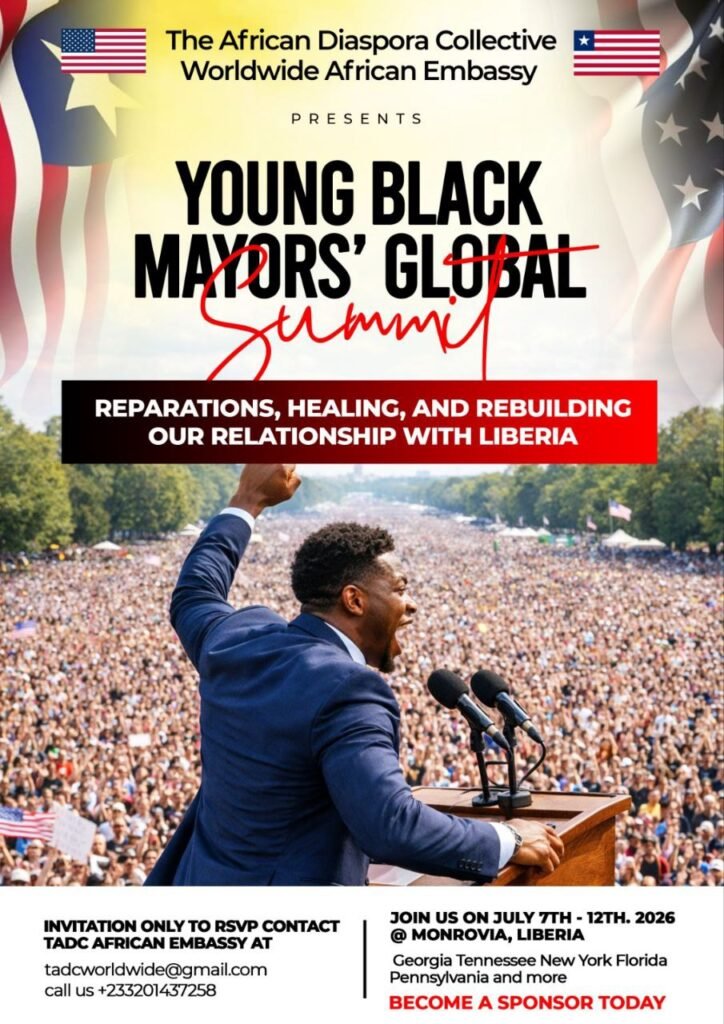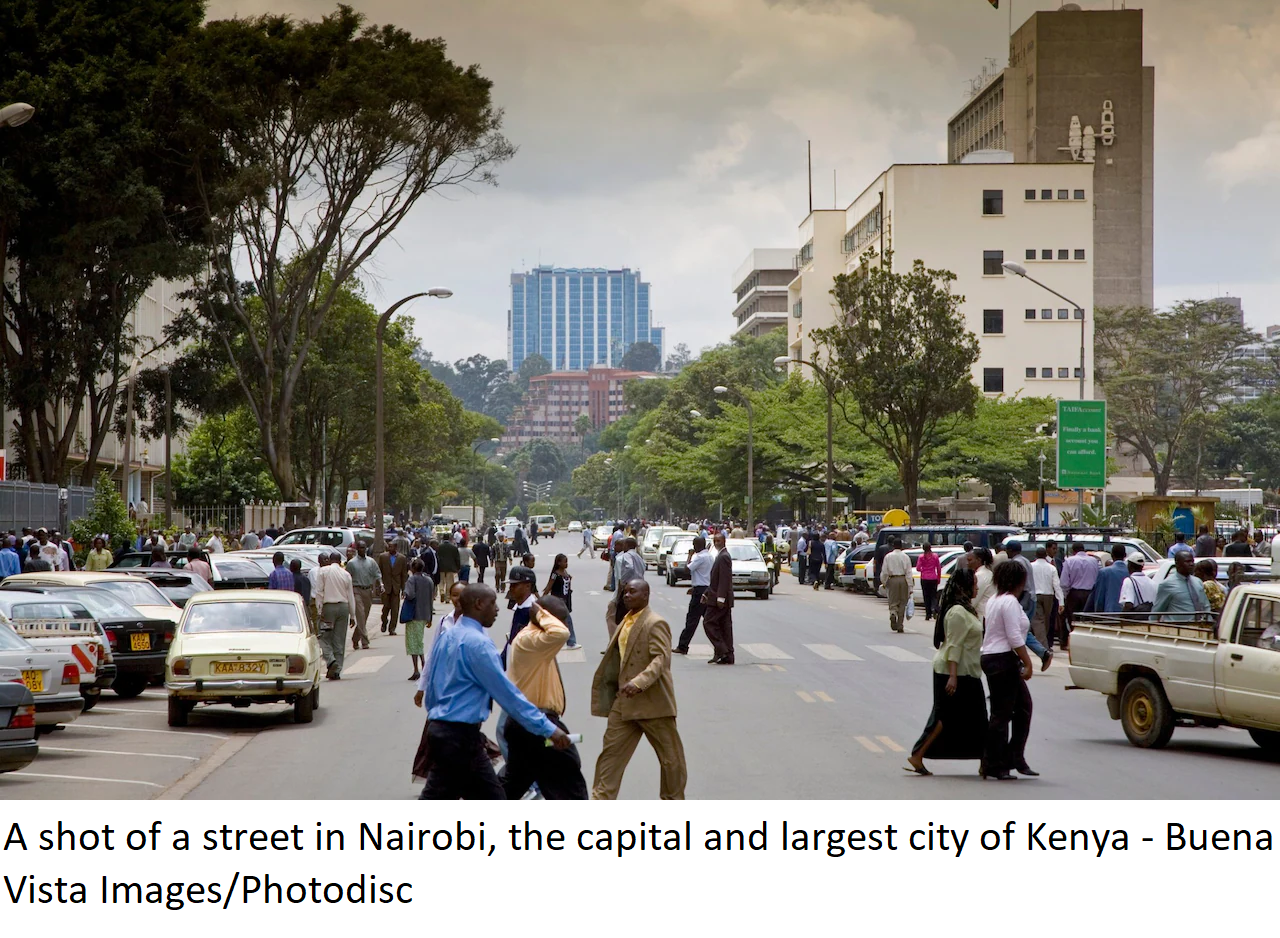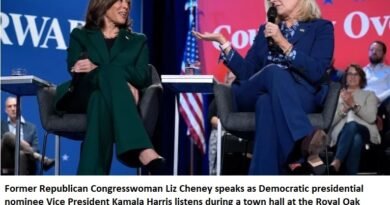The butt of jokes and a model of what not to do’: How Britain became the ‘used car salesman’ of Africa.
By Will Brown.
For years the bar in the British Embassy was the place to be in Sudan.
Booze is scarce in the strict Islamic country but local bigwigs and politicians would enjoy a subsidised whisky at Her Majesty’s expense, giving British diplomats valuable insights into what the Saudis, Chinese and Russians were really up to in the Horn of Africa.

But in 2019, the bar was closed because of the pandemic, and Sudanese elites joked it was a metaphor for British influence in Africa – the UK was slowly fading from view.
Indeed, the view of many current and former UK officials working across Africa can be characterised by a line from the English poet Ernest Dowson. “I am not as I was.”
Contrast this with Washington DC last week. President Biden launched the US-Africa summit in a lavish attempt to court 49 countries onto America’s side. “Africa belongs at the table,” the president declared.

African leaders are getting used to such overtures. Everyone from China and Russia to the Gulf and Turkey sees opportunity in the world’s fastest developing continent, and they are going out of their way to woo its politicians.
They are right to do so. Africa will play a pivotal role in the growth and stability of the global economy in the decades ahead.
By 2050, the continent’s population will double to almost 2.5 billion, accounting for a quarter of all people on earth. Nigeria alone is projected to grow to the third most populous nation behind India and China. Africa is also the key source of almost all the minerals needed for the globe’s ongoing green revolution.
Until relatively recently, Britain had some clout in the region. The UK may not have been building roads, railways or airports like China, or touting arms and mercenaries like Russia, but it did make its presence felt through generous aid contributions and development.
“Britain used to be … a development superpower”, said Sir Mark Lowcock, the UK’s former permanent secretary for international development. “That enhanced the UK’s soft power, earned respect and credibility and leveraged action from other rich countries to tackle global crises.”
Diminished power
No longer, alas. Britain’s position in Africa has been undermined by three years of budget cuts, the flight of top diplomatic staff, and apparent political indifference in Downing Street.
“The gap between claims made and actions people see have been taken is quite stark,” said Sir Lowcock. “The merger of DFID and the Foreign Office and the draconian aid cuts of the last few years sent all that up in smoke.
“Britain is now seen as the used car salesman of international development: reduced, the butt of jokes and the model of what not to do.”
James Cleverly, the UK’s first Foreign Secretary of recent African heritage, has indicated he wants this to change.
“I will make a long-term and sustained effort to revive old friendships and build new ones, reaching far beyond our long-established alliances,” he said upon his recent return from Kenya and Ethiopia.

He added that he wanted to strengthen bonds with the continent and become a “reliable” investment partner for African governments.
But it is hard to see how this will happen. Britain’s position is confused at best; blaise at worst. Many African embassies are running on a fraction of the staff they used to and have little or no money to play with.
Take Zambia. Former Conservative Development Minister Rory Stewart told The Telegraph there were 26 UK diplomats in Zambia when he started working for the government in 1995. By 2016, there were just two.
At the same time, trade with Africa has plummeted. It peaked at about $43 billion in 2012 but was down to $14 billion in 2020 – less trade than Spain or the Netherlands does with the continent.
“Given the history, the demographics, the old connections, it’s really puzzling that Africa is not valued more strategically in Westminster. The continent is about priority number two or three in France but about number 23 for the UK,” says Alex Vines, Africa Director of Chatham House.
Britain turning its back on Africa
“When the Integrated [defence] Review came out in 2021, the key thing for the Johnson government became a pivot to Asia and the Pacific. Someone had managed to convince then Foreign Secretary Dominic Raab that East Africa was important too, so there was a mini-pivot to Kenya and Ethiopia.
“But more broadly, the continent wasn’t regarded that highly apart from language on international development. Africa ended up just being a name check. The fiscal realities for the UK were exasperated by the Liz Truss budget, resulting in additional cuts across the diplomatic network, including in Africa.”
There have been some positives in recent years, such as an increase in investment in Francophone Africa, while some smaller countries like Mauritania, Togo, Burundi, Gabon and Guinea have opened embassies in London. The Commonwealth, too, has expanded to Gabon and Togo.
There have been valiant diplomatic efforts, like the creation of a British embassy in Nouakchott, the desert capital of Mauritania. One diplomat even shipped in a black cab decked out in ‘Britain is Great’ signs to trundle through the roughshod city past the vast, wind turbine-equipped US embassy. Sadly, he was quickly told by security that the cab made him too much of a target and was not bulletproof, so it would have to stay in the garage.
However, many insiders and observers argue that the general lack of prime ministerial visits to the continent since Tony Blair has been a real problem.

The last time a UK leader visited was in 2018, when Theresa May’s dancing exploits in Kenya and South Africa went viral and were ridiculed online.
This is in stark contrast to many other politicians from Europe and beyond. France’s Emmanuel Macron has invested vast amounts of time and effort in boosting ties with Africa. He and Turkey’s Recep Erdoğan have visited 16 and 11 African countries, respectively, since PM May jigged around Nairobi and Cape Town five years ago.
Conservative and Labour governments have long treated the Africa Minister position as one for party patronage. Incumbents often have limited knowledge of the continent and rarely stay more than a year, barely enough time to meet a few African leaders once, let alone establish any sort of rapport.
Several Whitehall insiders told the Telegraph that the churn of Africa Ministers and six foreign secretaries in six years had stymied the UK’s position, while other powers like Russia, Germany and China make headway.
One diplomatic source in Africa said that Liz Truss’ stint as the UK’s top diplomat from 2021-22 was “simply hopeless” because she knew nothing about Africa and did not want to know anything else.
Harmful aid cuts
“Priorities are shifting all the time, leading to mass disillusionment. Liz Truss didn’t know a thing about Africa. It was a complete calamity. The same thing for [former Africa Minister] James Duddridge. When you see the calibre of people that other countries are fielding in West Africa, you have to wonder what are we doing,” they said.
One thing the UK did use to excel at was aid. Wherever there was a crisis, Britain was ready to help those in need, giving it immense sway. But the budget is a fraction of what it was because of the devaluation of the Pound, the cut from 0.7 per cent of national income to 0.5 and the fact that the Home Office is dipping into the aid budget to pay for domestic relief programmes.
There is no better example of this than Somalia, where hundreds of thousands, if not millions, are facing starvation because of climate change-related droughts and food shortages from Russia’s invasion of Ukraine.
In 2012, Britain led the effort alongside the US to save hundreds of thousands from agonising deaths, but this year, with the needs at appalling levels, the UK has donated about a third of what it did a decade ago.
“We still have a seat at the table. We are small and nimble. But these aid cuts have damaged our influence enormously,” said another diplomat. “A few more diplomats can’t compensate for that. It speaks straight to our credibility. We are dropping off a cliff compared to other donors.”

Domestic politics have also hamstrung the UK’s standing, undermining its moral credibility on the continent.
The huge focus on getting the Rwanda migrant policy working means that the Conservative government has been cautious about openly criticising Kigali’s antics in the bloodied east of the Democratic Republic of the Congo (DRC).
The US, DRC and UN experts have all linked Rwanda to the armed rebel group M23, which has been waging a campaign of murder, rape, kidnapping and looting in the DRC.
But in an interview with the Telegraph last week, the British foreign secretary declined three times to say whether Kigali was supporting, funding or arming the murderous militia.
And when asked what the UK could offer Africa that China could not, Mr Cleverly struggled to answer, citing a new loan deal with Kenya and nothing else.
China, however, simply has more muscle. Earlier this year, it wrote off 23 loans to African countries, worth hundreds of millions, if not billions of pounds.
For Nicholas Westcott, director of the Royal Africa Society and former UK High Commissioner to Ghana, Britain is slowly disappearing from the picture.
“In Africa, Britain has been sleeping on its laurels so long they are crushed and faded,” he said. “For Africans, Britain is fading from view. The structures of Britain’s engagement are still there. We have an excellent diplomatic scaffolding, historical ties and long-standing trading links.
“But the substance is lacking: less money, less trade, fewer visits. Britain is still visible, still visited, but no longer admired the way it was.”
Culled from The Telegraph.




